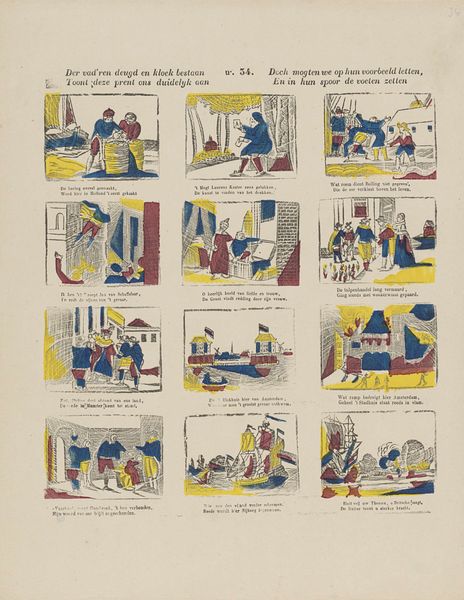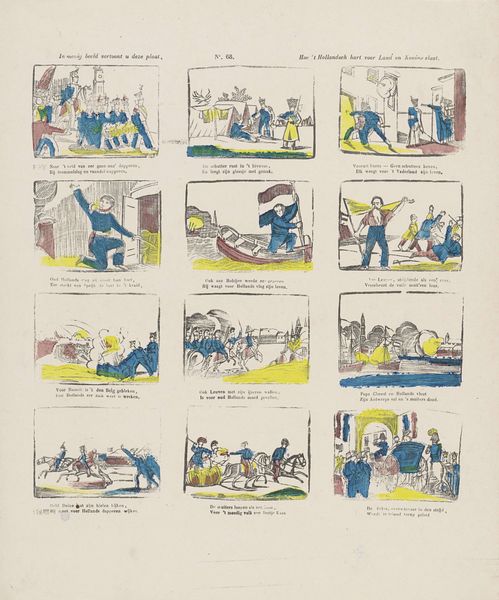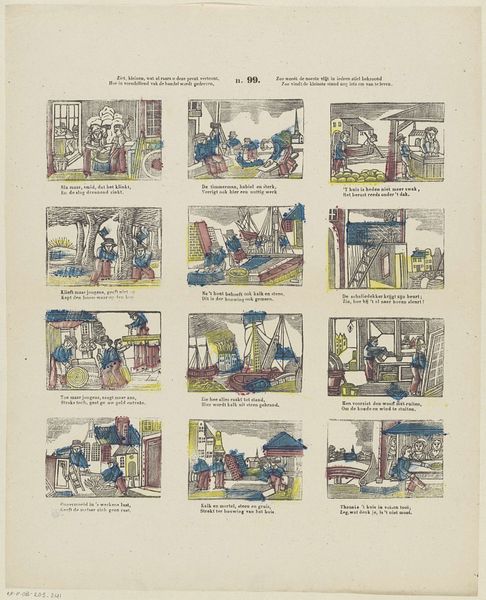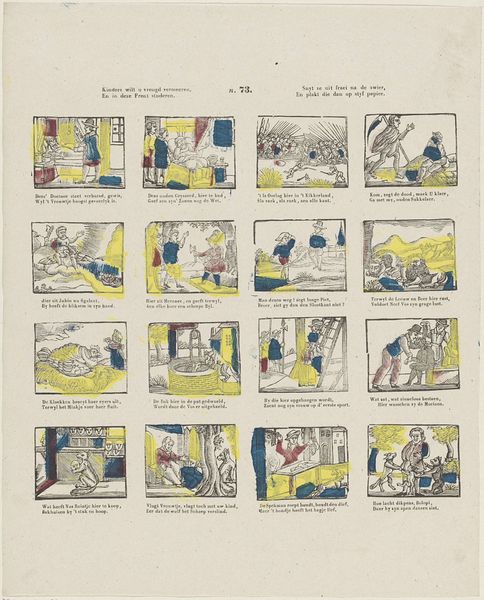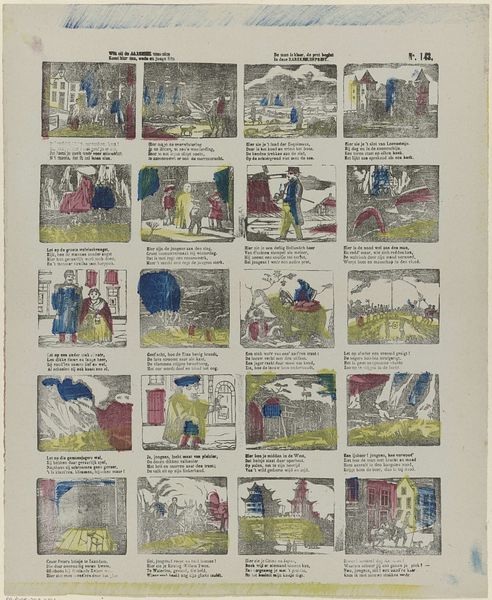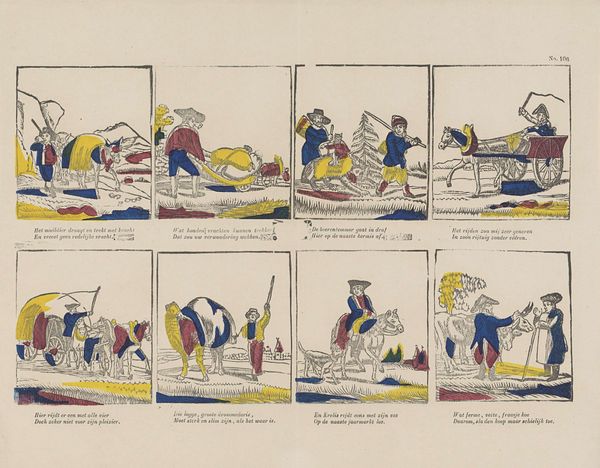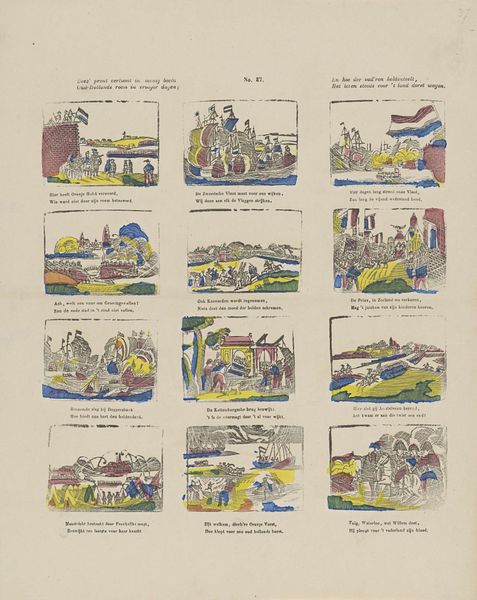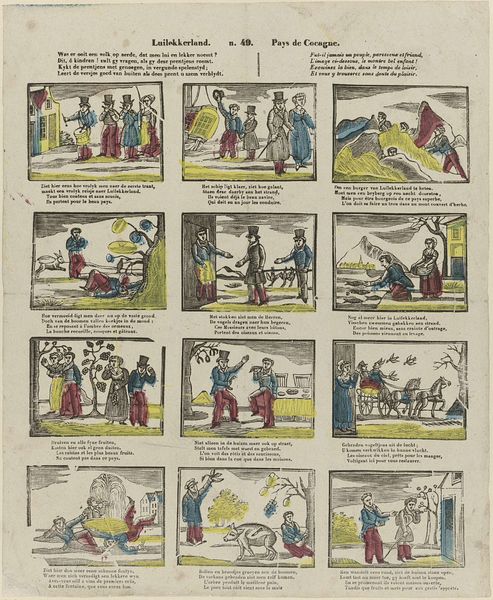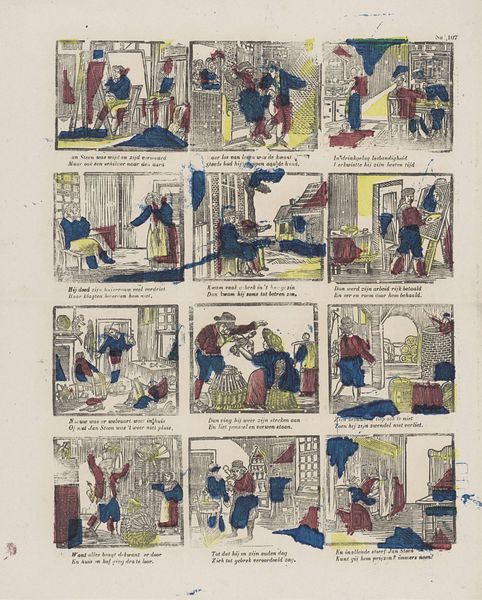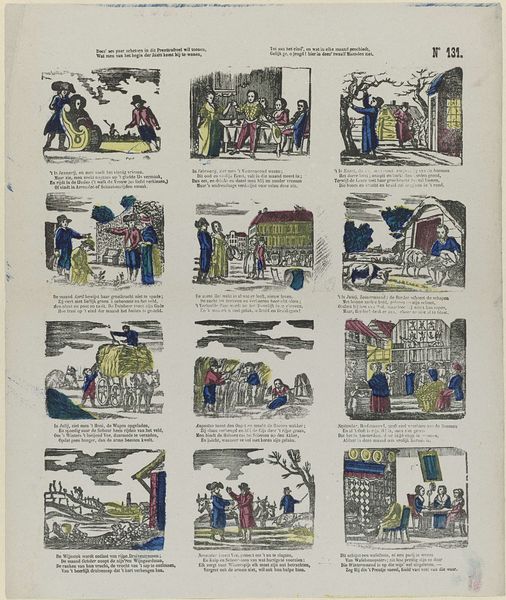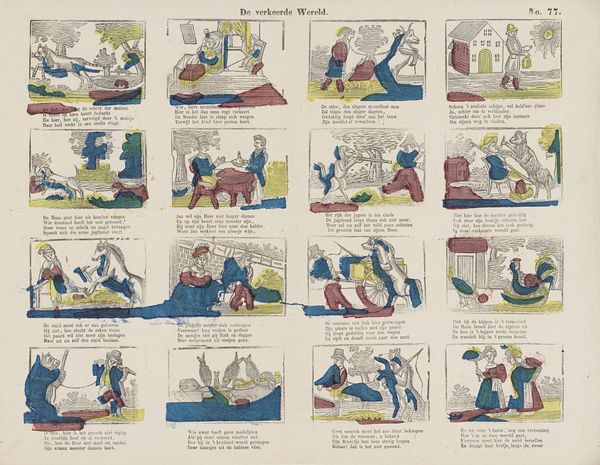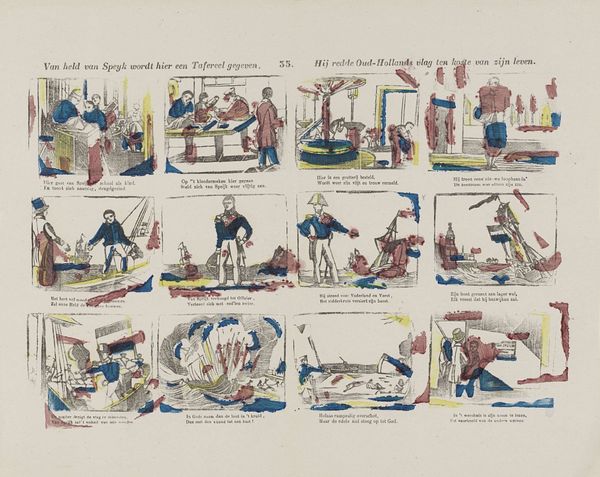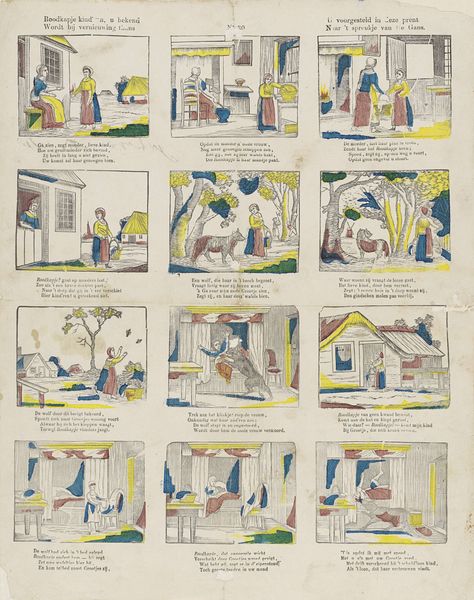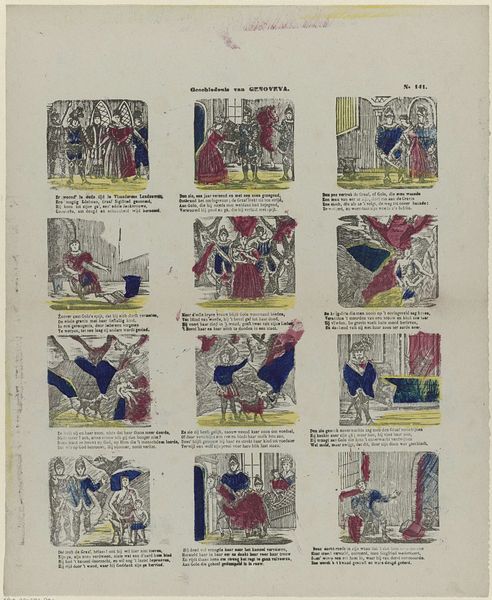![Wat onder 't Spaansche juk Oud-Holland heeft geleden; / En hoe 't met moed steeds voor zijn vrijheid heeft gestreden [(...)] by Lutkie & Cranenburg](/_next/image?url=https%3A%2F%2Fd2w8kbdekdi1gv.cloudfront.net%2FeyJidWNrZXQiOiAiYXJ0ZXJhLWltYWdlcy1idWNrZXQiLCAia2V5IjogImFydHdvcmtzLzViZjNiNTZkLWNmNmQtNDY0Yy1iNzhiLTQyYTcwZjY5Yzk3MC81YmYzYjU2ZC1jZjZkLTQ2NGMtYjc4Yi00MmE3MGY2OWM5NzBfZnVsbC5qcGciLCAiZWRpdHMiOiB7InJlc2l6ZSI6IHsid2lkdGgiOiAxOTIwLCAiaGVpZ2h0IjogMTkyMCwgImZpdCI6ICJpbnNpZGUifX19&w=3840&q=75)
Wat onder 't Spaansche juk Oud-Holland heeft geleden; / En hoe 't met moed steeds voor zijn vrijheid heeft gestreden [(...)] 1848 - 1881
0:00
0:00
lutkiecranenburg
Rijksmuseum
lithograph, print, engraving
#
narrative-art
#
dutch-golden-age
#
lithograph
# print
#
folk-art
#
genre-painting
#
history-painting
#
engraving
Dimensions: height 390 mm, width 313 mm
Copyright: Rijks Museum: Open Domain
Curator: Let's explore this lithograph and engraving from the Rijksmuseum’s collection titled "Wat onder 't Spaansche juk Oud-Holland heeft geleden," created between 1848 and 1881 by Lutkie & Cranenburg. Editor: It’s interesting; almost like an early comic strip recounting history. There’s a narrative quality to the individual images. What historical lenses can we use to interpret this work? Curator: Considering its creation in the mid-19th century, it's crucial to understand this piece as a reflection of Dutch national identity formation. It presents a retrospective view of the struggle against Spanish rule. Each scene acts as a piece of visual propaganda, reinforcing a particular narrative about Dutch resilience and the fight for freedom. Editor: Propaganda, really? It seems... quaint for such a loaded term. Curator: But think about the power dynamics at play here. Who gets to tell the story? Who is centered in this narrative of liberation? Consider the potential silences and erasures. Do we see the perspectives of the colonized or those marginalized within Dutch society? The work celebrates a very specific kind of freedom. Editor: That’s a really interesting point. It reframes my initial impression completely. So instead of just seeing it as a historical record, we need to question its motivations. Curator: Precisely. The selective color and simplistic depictions are calculated choices serving a nationalist agenda. By analyzing the absences, we understand how history is wielded as a tool for shaping collective memory. What questions does this raise for you about contemporary historical representations? Editor: Wow, it gives me a lot to consider. The print appears to be a fairly simple historical depiction, but it reflects much larger concerns about national identity and historical narrative. Curator: Indeed. This deeper dive into visual representation teaches us to look critically at all historical accounts.
Comments
No comments
Be the first to comment and join the conversation on the ultimate creative platform.
